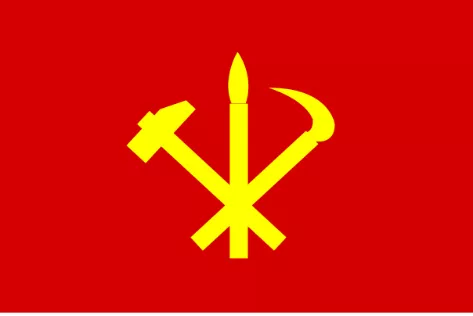The Workers' Party of Korea (WPK)

The Workers' Party of Korea (WPK), founded on October 10, 1945, stands as the monolithic ruling political entity of the Democratic People's Republic of Korea (DPRK), with a deep-rooted history entwined with the nation's formation and development. Originating from the North Korea Committee of the Communist Party, it later integrated with the New Democratic Party in August 1946, evolving into the North Korean Labor Party. Following the unification of the northern and southern factions in June 1949, the Workers' Party of Korea was officially born, under the stewardship of its founding leader, Kim Il Sung.
The WPK espouses a unique ideology, Kimilsungism-Kimjongilism, an extension of the Juche idea, which underscores self-reliance and independence, coupled with a 'military-first' (Songun) policy. This ideology, centered around the teachings and legacies of Kim Il Sung and his son Kim Jong Il, guides all aspects of state governance and societal organization. The current Supreme Leader, Kim Jong Un, serves as the Party's General Secretary, embodying the continuation of this leadership lineage.
The party's organizational structure is centralized and hierarchical, with the Congress being the supreme decision-making organ, convened periodically to set forth strategic directions. Below the Congress, the Central Committee, Political Bureau, and Secretariat oversee daily operations and policy implementation. The Military Commission holds particular importance, reflecting the party's close ties with and control over the Korean People's Army.
The WPK's extensive network permeates all levels of society, ensuring adherence to the party line and fostering a culture of loyalty. Its official newspaper, Rodong Sinmun, and other media outlets disseminate propaganda and communicate party directives, reinforcing unity and supporting the state's objectives.
The party's longevity and influence are attributed to its ability to adapt to changing circumstances while preserving its foundational principles. It continues to navigate international pressures and domestic challenges, maintaining stability and advancing the state's interests amidst global dynamics. The WPK's dominance underscores the centrality of its role in shaping the political, economic, and social contours of the DPRK.
文献出处:
https://baike.baidu.com/item/%E6%9C%9D%E9%B2%9C%E5%8A%B3%E5%8A%A8%E5%85%9A/2296821?fr=ge_ala

 CN
CN

